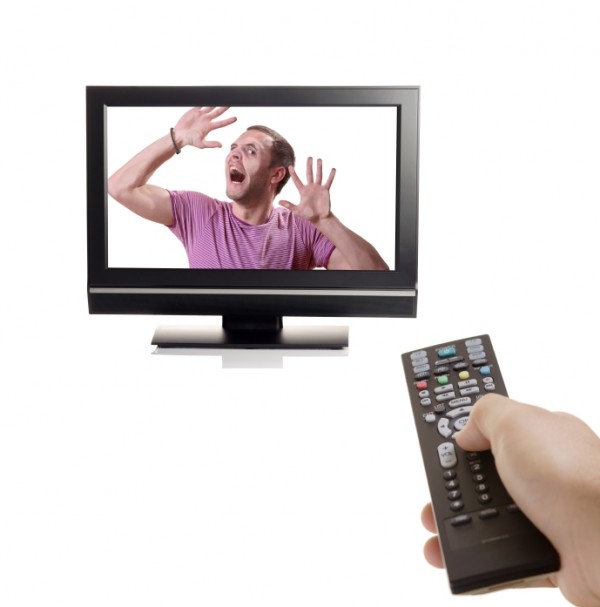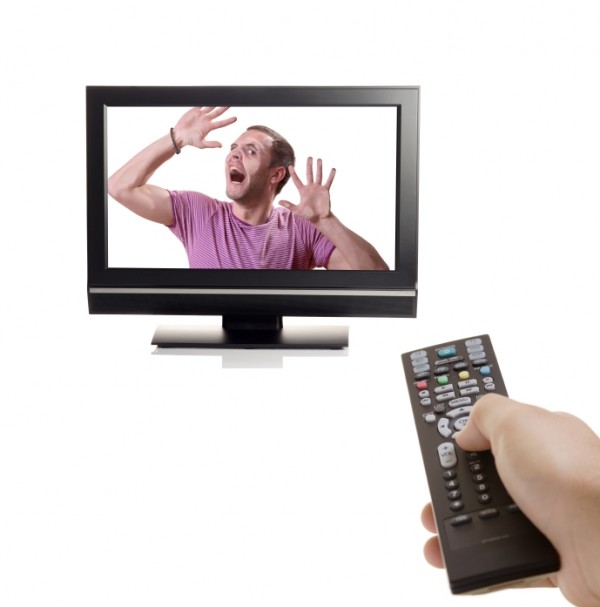
We interrupt your life to bring you this reminder: By June 12, all television signals in the U.S. will be digital. Seriously. So here’s an e-guide to ease your mind.
Wait, WTF is happening again? The signals from all TV stations, which were analog for decades, will now be digital. This transition actually began in 1996, when Congress gave each station an extra channel for digital transmission. There are three official reasons for the full transition: first and foremost, it frees up analog airspace for public-safety purposes; second, it frees up some space for wireless companies; and third, it will bring you prettier pictures on your TV. The fourth, unofficial reason: It forces people to buy more stuff! But you didn’t hear it from us.
OK, so what do I need to do? If you have a digital TV or you get cable or satellite programming, relax and do nothing. (Wait, is that redundant?) If you have a “digital-ready” monitor, you may need to buy a digital set-top box. If you don’t get cable or satellite TV and yours is an analog set — which you should be able to tell from the manual or by the fact that you bought it in like 1987 — you’ll need to buy either a converter or a new set. Yeah, that’s 22 million of you.
So if I have to buy a converter, are there green options? Well here’s how to save some green: hit the government up for a coupon. In terms of buying green, there are lots of different converter boxes out there — look for one with an Energy Star rating.
I think I might suck it up and buy a new TV. How can I make the greenest choice? Again, look for Energy Star-rated TVs — it’s the best guideline for consumers right now. In about 18 months, if you can wait that long, there will be a more comprehensive label (tentatively and uncatchily called EPEAT-for-TV) that considers factors in addition to energy. As always, we recommend plugging your gadgets into power strips for ultimate smartiness.
When I ditch my old TV, do I just put it on the curb or what? Your TV is full of lead and mercury. If you just ditch it, those metals will ooze into water supplies and come back to poison you. So please, recycle your TV — or, since analogs still work perfectly well with DVD players, VCRs, and game systems, see if there’s a local school, library, or nursing home that could use it. Otherwise, for proper disposal in your area, check Earth911 or the EPA’s eCycling site.
Hey, by the way, which TV companies are actually doing good green things? Most of the major manufacturers are making noise about greener sets, but there are a few that truly seem committed, and one that’s a real star. We award the Golden Clicker to Sony — not only are they developing innovative products including an organic LED and a TV that saves energy by turning itself off if you fall asleep, they were the first company to launch a national takeback program and were an industry leader on the new labeling program. Samsung and LG are also doing good things; to find out how all the TV companies compare, visit the Electronics Takeback Coalition’s Take Back My TV site.
Maybe it’s the Wipeout-fueled ADD, but that article made no sense to me. Where can I go to find out more? Seriously? We thought it was so clear and concise. Well, the government has a whole useful site about the digital TV transition that should do the trick. We now return you to your regularly scheduled program.




